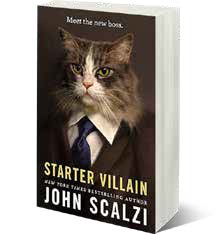This is not high school history. David McCullough’s “1776” is a riveting account of the first year of the War of Independence.After consulting 294 American and British sources including letters, diaries, books, newspapers, and maps, McCullough replaces the myths surrounding the American Revolution with stark reality.He writes the history of an uncertain nation led by inexperienced, indecisive generals. George Washington blunders his way from one battle to the next. No American leader seems to understand the strategic importance of a navy. Our troops, mostly farm boys, too young to be called men, resemble an unruly mob more than an army. Encountering the likes of them today, you would turn away, horrified by their physical condition and stench. Washington called his New England troops “exceedingly dirty and nasty.” Certainly, the one thing British General Howe and George Washington agreed on was their disdain for the common “Yankee rabble.”Dirty, ragged, half-starved men more interested in rum than glory are the souls who won our independence. By the end of McCullough’s engrossing narrative, you realize our American heroes did not win this war by great acts, but by sheer determination.When the conflict began, most Americans considered their selves British citizens and didn’t support the war. The book begins in Great Britain in October 1775. King George III, not the dimwit usually portrayed in our history books, but a very intelligent man who loved architecture, music and books, addresses Parliament; “Among the many unavoidable ill consequences of this rebellion, none affects me more sensibly than the extraordinary burden which it must create to my faithful subjects.” The “faithful subjects” he refers to were the majority of Americans. A point reinforced when the Marquis of Rockingham objects to the king’s requests to hire foreign mercenaries and to send more troops to America because the prospect of “shedding British blood by British hands” is deplorable.”At the start of the siege of Boston there had been no American army,” McCullough writes. Of course, there was also no flag, uniforms, and very little gunpowder, Nathanael Greene lamented. General Greene, a 33-year-old self-taught man, never set foot on a battlefield before receiving his commission. But he was hard working, intelligent, and under his leadership Rhode Island troops were the best-trained soldiers in the Continental Army.After the Battles of Lexington and Concord in April 1775, American men rushed to join the army, but patriotic feelings waned quickly when dysentery and typhoid spread through the camps. Men deserted the army to go clamming or to work on their farms, sometimes, but not always, returning.Washington longs to return to his 54,000-acre farm in Virginia throughout the war. Who can blame him? He was handed the impossible task of fighting the greatest nation in the world without adequate food, funds, or weapons and with troops whose enlistments were up annually. His own officers conspired against him, and he is only free to express his self-doubt in letters to his wife.McCullough’s actual voice comes through loud and clear while reading “1776,” and it draws the reader into every situation. You feel surrounded as British ships head up the Hudson, exhausted by the run through New Jersey, only a few steps ahead of the enemy; and disgusted when our heroic Continental Congress high tails it to Baltimore, abandoning Philadelphia as the British draw closer.History teachers should abandon the normal textbooks about the Revolution and have the students read “1776.” It should spark a life-long interest in the subject. While the book only covers the first year of the war, it certainly reports the truth behind our nation’s beginning, with all its foibles, warts and glories.McCullough has written two Pulitzer Prize winning books, “Truman” and “John Adams;” “1776” should be his third Pulitzer because the historic narrative is one the reader cannot put down, in spite of knowing the ending.On Thurs., Oct.27 at 6:30 p.m., the reading group will discuss “We the Living” by Ayn Rand. Stop by Espresso Stratfords and join in the conversation.






